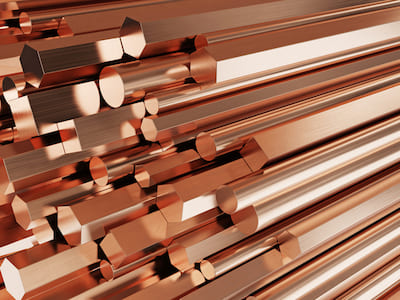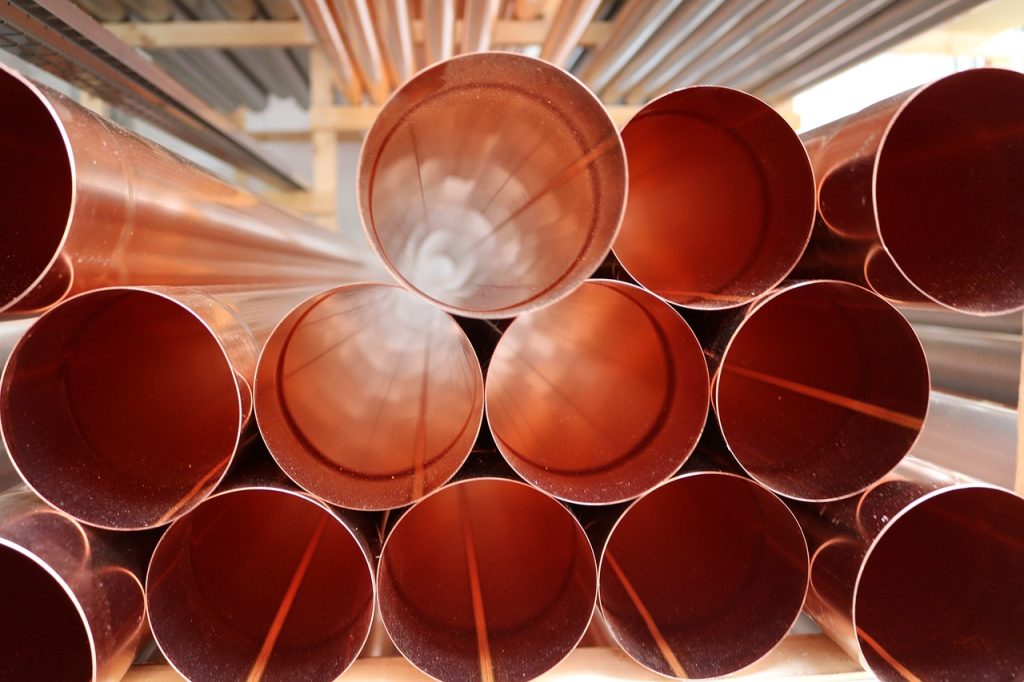Enhancing Your Kitchen Area with Premium Copper Products: Tips and Finest Practices
Enhancing Your Kitchen Area with Premium Copper Products: Tips and Finest Practices
Blog Article
Checking Out the Diverse Applications of Copper Products in Modern Industries
From enhancing the performance of electrical systems to playing a critical duty in eco-friendly power technologies, the adaptability of copper is noticeable. As markets significantly prioritize technology and sustainability, the diverse applications of copper require a closer exam, particularly concerning their potential effect on future ecological techniques and technical innovations.
Electrical Applications of Copper
Copper is a crucial product in the electrical sector, making up around 60% of the total need for non-ferrous steels internationally - Copper Products. Its remarkable electrical conductivity, which is nearly twice that of light weight aluminum, makes it the favored option for a vast array of electric applications. From electrical wiring systems in business and property buildings to high-voltage power transmission lines, copper makes certain efficiency and dependability in electrical energy delivery
In addition to electrical wiring, copper is essential to the manufacturing of electric components such as transformers, electric motors, and generators. These elements leverage copper's thermal conductivity and pliability, essential for warmth dissipation and effective performance. Furthermore, copper's resistance to deterioration enhances the lifespan and toughness of electric systems, making it an economical remedy in the long-term.
The growth of renewable resource sources, such as solar and wind power, has better boosted the demand for copper in electric applications. As markets transition in the direction of lasting power services, copper's duty ends up being a lot more important. On the whole, the versatility and performance features of copper solidify its status as a keystone product within the electric market, driving technology and performance across different applications.
Pipes and Piping Solutions
In modern pipes systems, the option of materials dramatically affects both functionality and durability. Copper has become a preferred alternative because of its special residential or commercial properties, consisting of corrosion resistance and antimicrobial characteristics. These characteristics make certain that copper piping continues to be long lasting and safe for carrying drinkable water, a vital consideration in property and industrial applications.
Among the vital advantages of copper in plumbing is its capacity to hold up against high temperatures and stress, making it ideal for a range of applications, from warm water systems to home heating and cooling networks. Additionally, copper's adaptability enables less complicated setup in complex piping formats, decreasing the risk of leaks and failings.
Another noteworthy benefit is copper's lengthy life-span, usually surpassing half a century with appropriate upkeep. This durability not just minimizes substitute prices however also adds to sustainable practices by minimizing waste. Furthermore, copper's recyclability aligns with modern ecological criteria, promoting a circular economic climate within the pipes market.
Copper in Renewable Energy
The flexibility of copper prolongs past plumbing applications, playing an important role in the sustainable power industry. Its excellent electrical and thermal conductivity makes it an important product in the manufacturing and distribution of renewable resource sources, especially solar and wind power. In solar panels, copper is used in solar batteries and circuitry, facilitating reliable power conversion and transmission. Its resistance to rust makes sure resilient performance, which is critical for making the most of energy result over time.

In addition, as the global demand for electrical cars (EVs) increases, copper's duty in battery systems find more info and billing infrastructure comes to be a lot more significant. The product's capability to perform electrical energy effectively is essential to the performance of EV batteries, improving range and billing rate.
Copper's Duty in Electronic devices
Electronic devices producing relies greatly on copper's remarkable properties, particularly its high electrical conductivity and thermal efficiency. These characteristics make copper a suitable option for a vast array of digital parts, including adapters, motherboard, and electrical wiring. The steel's ability to successfully send electrical signals ensures marginal power loss, which is important in high-performance digital gadgets.
In addition, copper's thermal conductivity plays a substantial role in warm dissipation, shielding sensitive elements from overheating. This is particularly vital in modern electronic devices, where portable designs result in enhanced warm generation. Copper is likewise favored for its malleability and ductility, permitting it to be quickly formed into elaborate designs that fulfill the needs of sophisticated electronic applications.
With the rise of customer electronic devices, telecoms, and electric cars, the demand for copper in the electronics market proceeds to expand. Thus, copper stays a foundation product in the ever-expanding field of electronic devices.
Ingenious Makes Use Of in Manufacturing

One remarkable application is in additive manufacturing, where copper-based materials are used in 3D printing processes. This enables the production of light-weight components and intricate geometries, specifically in the aerospace and vehicle sectors. Additionally, copper's thermal conductivity makes it a perfect option for warm exchangers, boosting performance in commercial cooling systems.
In addition, the surge of smart production has seen the incorporation of copper in IoT devices, where its conductive capacities sustain innovative noticing modern technologies. In the world of sustainable power, copper is pivotal in the production of photovoltaic panels and wind turbines, facilitating more effective power conversion and distribution.
As markets pursue sustainability and technology, copper's flexibility and performance continue to place it as a crucial material, driving innovations in manufacturing and adding to the development of smarter, much more effective products.
Verdict
The indispensable role of copper in renewable energy and its important function in electronic devices emphasize its significance in advancing sustainable methods. Collectively, these applications highlight copper's essential payment to technical development and commercial efficiency in modern society.
From improving the effectiveness of electrical systems to playing a crucial duty in sustainable power innovations, the convenience of copper is noticeable. As industries progressively prioritize advancement and sustainability, the varied applications of copper require a closer exam, especially concerning their prospective influence on future environmental methods and technological improvements.
The development of sustainable power sources, such as solar and wind power, has additionally increased the demand for copper in electric applications. Overall, the flexibility and efficiency features of copper strengthen its status as a keystone material within the electrical field, driving development and effectiveness throughout various applications.
The convenience of copper prolongs beyond pipes applications, playing an important function in the eco-friendly energy field.
Report this page